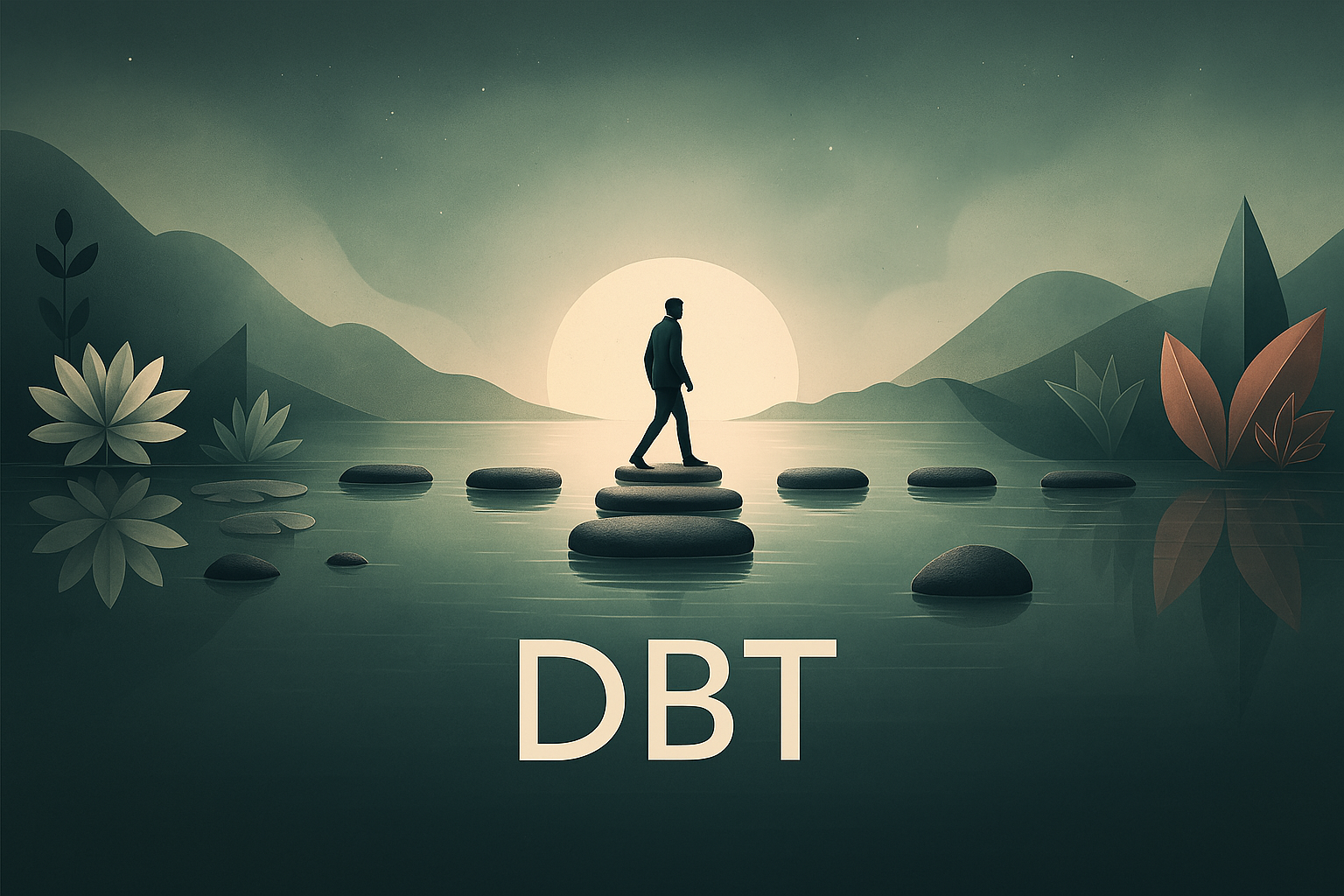Dialectic Behavioral Therapy (DBT)
A Path to Emotional Balance and Growth
Dialectical Behavior Therapy (DBT) is a highly effective, evidence-based form of psychotherapy designed to help individuals manage intense emotions, improve relationships, and lead more balanced lives. Originally developed by Dr. Marsha Linehan to treat individuals with Borderline Personality Disorder (BPD), DBT has since been adapted to address a wide range of mental health challenges, including anxiety, depression, PTSD, and eating disorders. By combining acceptance strategies with tools for change, DBT empowers individuals to regulate emotions and create meaningful lives.
What is DBT?
DBT is a structured, skills-based therapy that emphasizes both acceptance and change. It operates on the understanding that individuals can acknowledge and validate their emotions while also working to modify behaviors that may be counterproductive or harmful. The term “dialectical” refers to the balance between these two seemingly opposing ideas.
DBT consists of four main components:
1.Mindfulness: Being fully present in the moment without judgment.
2.Distress Tolerance: Learning to cope with and survive crises without making things worse.
3.Emotional Regulation: Understanding and managing intense emotions effectively.
4.Interpersonal Effectiveness: Building healthy relationships and setting boundaries.
Who Can Benefit from DBT?
DBT is particularly effective for individuals who experience intense emotional dysregulation or have difficulty managing relationships. It is commonly used to treat:
•Borderline Personality Disorder (BPD): DBT was initially created to address the emotional instability, self-harm, and impulsivity often associated with BPD.
•Anxiety and Depression: DBT helps individuals cope with overwhelming feelings and improve their outlook on life.
•Post-Traumatic Stress Disorder (PTSD): Provides tools to manage intrusive thoughts and emotional reactivity.
•Eating Disorders: Assists in addressing underlying emotional struggles and harmful behaviors.
•Substance Abuse: Helps reduce reliance on substances as a coping mechanism by building healthier alternatives.
Core Components of DBT
DBT typically involves a combination of individual therapy, group skills training, and between-session coaching. Here’s how these components work together:
1. Individual Therapy
In one-on-one sessions, a therapist helps clients identify personal goals, navigate challenges, and apply DBT skills to their specific situations. This provides tailored support and accountability.
2. Group Skills Training
Group sessions teach the four core DBT skills—mindfulness, distress tolerance, emotional regulation, and interpersonal effectiveness. These structured classes focus on practical strategies that clients can apply in daily life.
3. Phone Coaching
Between sessions, clients can reach out to their therapist for guidance on how to use DBT skills in real-life situations, such as handling a conflict or managing a crisis.
4. Therapist Consultation Team
DBT therapists often work as part of a consultation team to maintain their own skills and provide the best possible care for their clients.
Key Skills Taught in DBT
1.Mindfulness:
•Increases self-awareness and helps individuals stay grounded in the present moment.
•Reduces reactivity to stressful situations and fosters acceptance.
2.Distress Tolerance:
•Provides strategies for managing crises without resorting to harmful behaviors.
•Techniques include self-soothing, distraction, and radical acceptance.
3.Emotional Regulation:
•Helps individuals identify and understand their emotions.
•Teaches strategies to reduce emotional intensity and promote stability.
4.Interpersonal Effectiveness:
•Focuses on building healthy relationships through assertiveness and boundary-setting.
•Helps individuals navigate conflict and improve communication.
Benefits of DBT
DBT is transformative because it equips individuals with the tools they need to:
•Manage overwhelming emotions.
•Reduce self-destructive behaviors, such as self-harm or impulsivity.
•Build stronger, healthier relationships.
•Increase self-awareness and emotional resilience.
•Create a life aligned with their personal values and goals.
Research shows that DBT significantly improves emotional regulation, reduces symptoms of mental health conditions, and enhances overall quality of life.
How to Get Started with DBT
If DBT resonates with you, consider reaching out to a licensed therapist trained in DBT. Therapy is typically offered in individual or group formats, both in-person and online. Many self-help resources, such as DBT workbooks and apps, are also available to complement formal therapy.
Overview
Dialectical Behavior Therapy is a powerful approach for individuals seeking to navigate life’s challenges with greater emotional balance and purpose. By combining acceptance and change, DBT provides tools to transform emotional struggles into opportunities for growth. Whether you’re dealing with intense emotions, relationship challenges, or seeking personal growth, DBT can help you build a life worth living.

